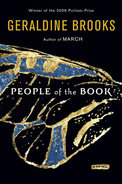
What a fascinating read which grew on me the more I entered the worlds the author created. People of the Book is like a detective story, a collection of short stories of the Jewish people’s plight through the centuries, and story of a young woman who labors to find herself as she struggles against the iron will of her judgmental mother an immensely successful surgeon. In her follow-on novel after her Pulitzer Prize winning March, Geraldine Brooks delivers a collection of stories within the framework of another story which binds them all together. Some have compared this to Dan Brown’s Da Vinci Code, yet I don’t get that at all, except for the convention of looking into the past to gain some sense of revelation in the present. The themes and genre were distinctly different in my view.
A fictional account of the actual historical Sarajevo Haggadah, an antique Jewish prayer book, it places Hanna Heath, and Australian book conservator on the job to restore the tome before it goes on museum display. During her work, she finds small articles and unique details within the book - a butterfly wing, a stain on a page, a hair, and more – and they provide the device for the narrative to span the imagined history of the book, going back in time with each episode, all of which are woven into Hanna’s story in the present (set in 1996).
Each story has a poignancy of the human condition, portraying times in Europe’s history many of which are on the more obscure side of traditional Western readership awareness: the plight of Muslim and Jewish refugees during the tumultuous years of the Communist resistance against the Nazis in Yugoslavia during World War II; the challenges of Jewish life in Vienna in 1894 where undercurrents of anti-Semitism are growing more pronounced with each day; Venice 1609 where the Jewish Ghetto struggles for survival under the iron supervision of the ruling Catholic hierarchy; Tarragona, Spain 1492, where labors for survival under the lethal dictates of the Inquisition are always on the razor’s edge; Seville, Spain 1408 where Muslim rulers treat their Jewish slaves with fatal disregard. As Hanna commits herself to risking both her professional reputation and her relationship with her mother on the line, the reader delves continually deeper on a voyage of discovery of all the book’s mysteries. It was a rewarding, well-paced and educational read, and I recommend it highly.
A fictional account of the actual historical Sarajevo Haggadah, an antique Jewish prayer book, it places Hanna Heath, and Australian book conservator on the job to restore the tome before it goes on museum display. During her work, she finds small articles and unique details within the book - a butterfly wing, a stain on a page, a hair, and more – and they provide the device for the narrative to span the imagined history of the book, going back in time with each episode, all of which are woven into Hanna’s story in the present (set in 1996).
Each story has a poignancy of the human condition, portraying times in Europe’s history many of which are on the more obscure side of traditional Western readership awareness: the plight of Muslim and Jewish refugees during the tumultuous years of the Communist resistance against the Nazis in Yugoslavia during World War II; the challenges of Jewish life in Vienna in 1894 where undercurrents of anti-Semitism are growing more pronounced with each day; Venice 1609 where the Jewish Ghetto struggles for survival under the iron supervision of the ruling Catholic hierarchy; Tarragona, Spain 1492, where labors for survival under the lethal dictates of the Inquisition are always on the razor’s edge; Seville, Spain 1408 where Muslim rulers treat their Jewish slaves with fatal disregard. As Hanna commits herself to risking both her professional reputation and her relationship with her mother on the line, the reader delves continually deeper on a voyage of discovery of all the book’s mysteries. It was a rewarding, well-paced and educational read, and I recommend it highly.
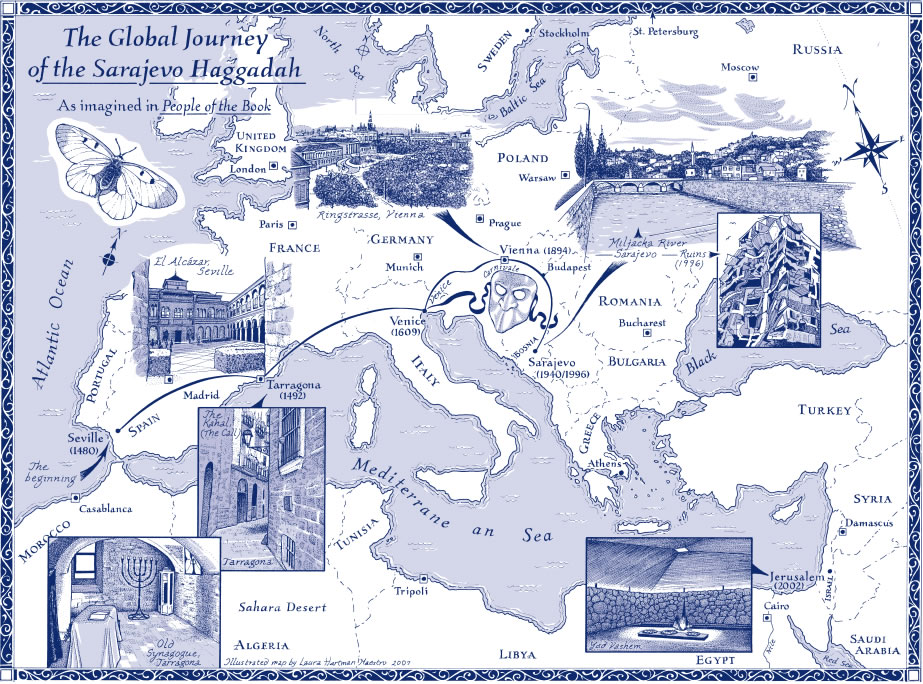
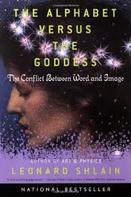
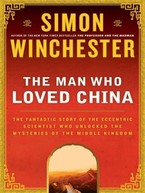
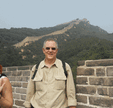
 RSS Feed
RSS Feed
